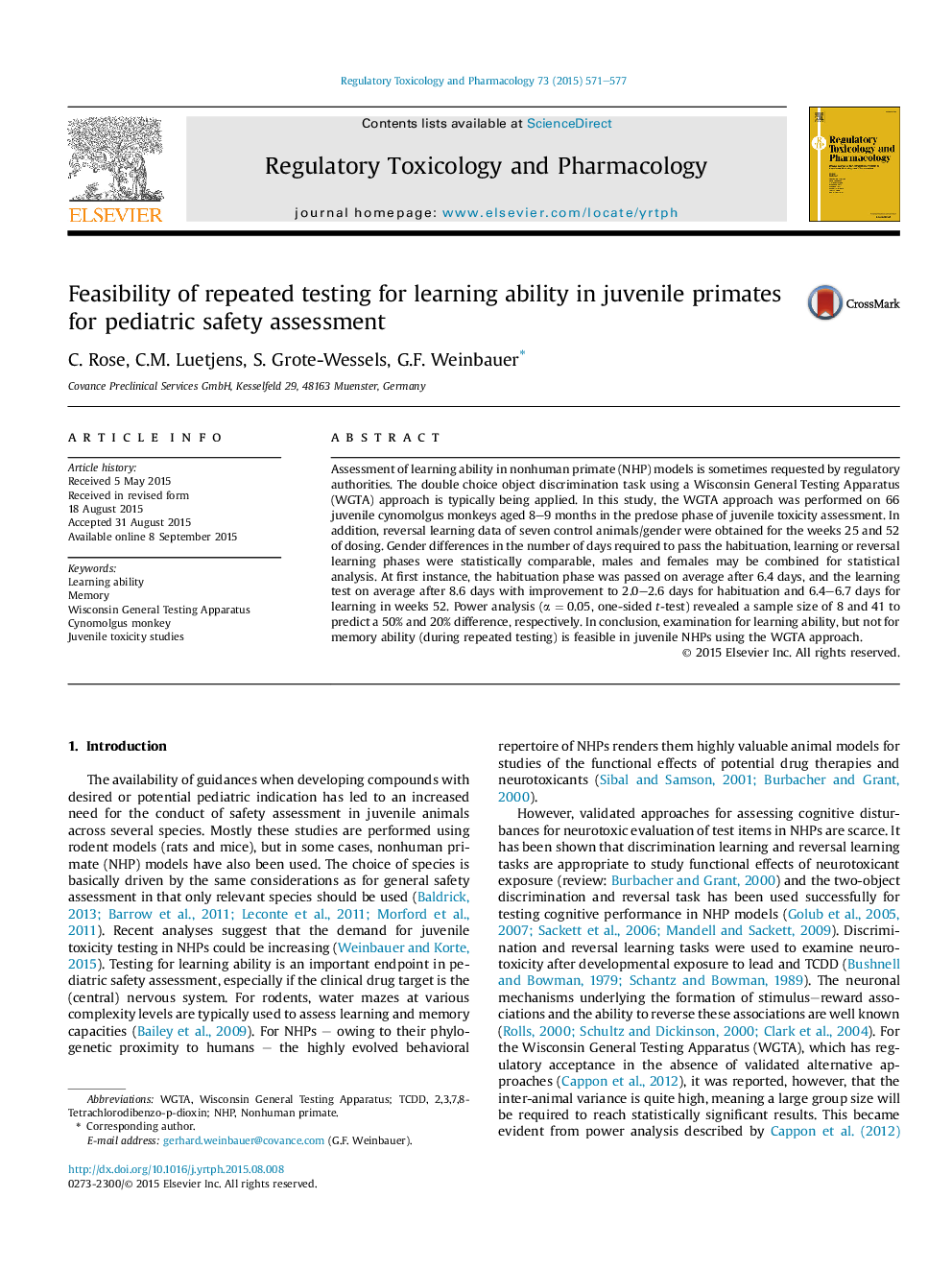| کد مقاله | کد نشریه | سال انتشار | مقاله انگلیسی | نسخه تمام متن |
|---|---|---|---|---|
| 5856162 | 1131968 | 2015 | 7 صفحه PDF | دانلود رایگان |
عنوان انگلیسی مقاله ISI
Feasibility of repeated testing for learning ability in juvenile primates for pediatric safety assessment
ترجمه فارسی عنوان
امکان سنجی تست مکرر برای توانایی یادگیری در پرتوی نوجوانان برای ارزیابی ایمنی کودکان
دانلود مقاله + سفارش ترجمه
دانلود مقاله ISI انگلیسی
رایگان برای ایرانیان
کلمات کلیدی
موضوعات مرتبط
علوم زیستی و بیوفناوری
علوم محیط زیست
بهداشت، سم شناسی و جهش زایی
چکیده انگلیسی
Assessment of learning ability in nonhuman primate (NHP) models is sometimes requested by regulatory authorities. The double choice object discrimination task using a Wisconsin General Testing Apparatus (WGTA) approach is typically being applied. In this study, the WGTA approach was performed on 66 juvenile cynomolgus monkeys aged 8-9 months in the predose phase of juvenile toxicity assessment. In addition, reversal learning data of seven control animals/gender were obtained for the weeks 25 and 52 of dosing. Gender differences in the number of days required to pass the habituation, learning or reversal learning phases were statistically comparable, males and females may be combined for statistical analysis. At first instance, the habituation phase was passed on average after 6.4 days, and the learning test on average after 8.6 days with improvement to 2.0-2.6 days for habituation and 6.4-6.7 days for learning in weeks 52. Power analysis (α = 0.05, one-sided t-test) revealed a sample size of 8 and 41 to predict a 50% and 20% difference, respectively. In conclusion, examination for learning ability, but not for memory ability (during repeated testing) is feasible in juvenile NHPs using the WGTA approach.
ناشر
Database: Elsevier - ScienceDirect (ساینس دایرکت)
Journal: Regulatory Toxicology and Pharmacology - Volume 73, Issue 2, November 2015, Pages 571-577
Journal: Regulatory Toxicology and Pharmacology - Volume 73, Issue 2, November 2015, Pages 571-577
نویسندگان
C. Rose, C.M. Luetjens, S. Grote-Wessels, G.F. Weinbauer,
